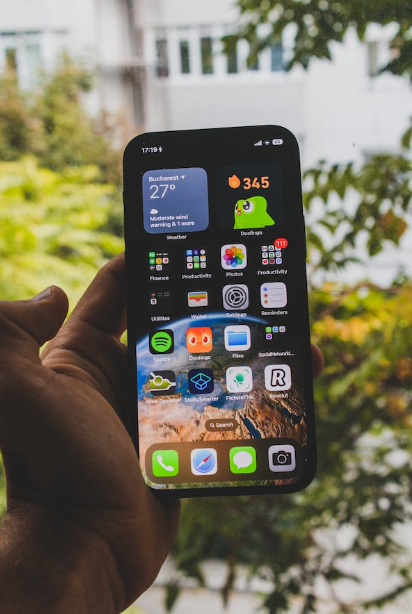The Best and Worst of Mobile Navigation Apps

Introduction
In an era where smartphones have become an indispensable part of our lives, mobile navigation apps have transformed the way we navigate the world. Gone are the days of unfolding paper maps and relying on instincts; navigation apps offer real-time directions, traffic updates, and convenience at our fingertips. However, not all navigation apps are created equal. In this article, we will explore the best mobile navigation apps that have revolutionized the way we travel and discuss some of the downsides that users may encounter during their journeys.

The Best Mobile Navigation Apps
- Google Maps: The Ultimate Navigator
Google Maps stands as the benchmark for navigation apps, offering unparalleled features and accuracy. With a vast database of locations, comprehensive street views, and real-time traffic updates, Google Maps ensures seamless navigation for daily commutes and travel adventures alike.
- Waze: The Community-Driven Choice
Waze differentiates itself by harnessing the power of its user community. Drivers actively contribute real-time traffic data, accidents, and road closures, enabling fellow users to bypass traffic jams and find the fastest routes.

- Apple Maps: Integration with iOS
Apple Maps, integrated into iOS devices, provides a native navigation solution for Apple users. With continuous improvements, Apple Maps offers turn-by-turn directions, public transportation information, and Siri integration for hands-free navigation.
- HERE WeGo: Offline Navigation Made Easy
HERE WeGo caters to travelers who seek reliable offline navigation. With pre-downloaded maps, users can navigate without relying on internet connectivity, making it ideal for international travel and remote areas with limited network coverage.

- Maps.me: For the Adventurous Traveler
Maps.me is a favorite among adventurous travelers, offering detailed offline maps for remote and off-grid destinations. Whether hiking in the wilderness or exploring rural regions, Maps.me ensures users stay on the right path.
The Downsides of Mobile Navigation Apps
- Inaccurate Directions: Lost in Translation
While navigation apps have come a long way, they are not infallible. Instances of incorrect routes and confusing directions have been reported, leading users astray in unfamiliar areas.

- Data Usage: The Hidden Cost
Navigation apps heavily rely on data to fetch real-time information. This continuous data usage can lead to unexpected charges, especially for travelers roaming in foreign countries.
- Battery Drain: Navigating with Caution
Navigation apps can be power-intensive, draining device batteries rapidly. Prolonged usage may result in a dead battery, leaving travelers without access to maps or communication.
- Limited Coverage: Off the Grid Navigation
In remote areas with poor network coverage, some navigation apps may struggle to provide accurate directions, leaving travelers without reliable guidance.
- Privacy Concerns: Who’s Tracking You?
Some navigation apps collect user data to improve services, but this raises privacy concerns. Users may feel uncomfortable with apps tracking their locations and data.

Conclusion
Mobile navigation apps have undoubtedly transformed the way we navigate and explore the world. Top apps like Google Maps and Waze offer unmatched features, while offline options like HERE WeGo and Maps.me cater to travelers venturing off-grid. However, users must be aware of potential downsides, such as inaccurate directions, data usage, battery drain, limited coverage, and privacy concerns. To ensure hassle-free navigation experiences, travelers should weigh the pros and cons of each app and make informed decisions based on their specific travel needs and preferences.
FAQs
- Are all navigation apps free to use?
- Many navigation apps offer basic features for free, but some may have premium features or in-app purchases for added functionality.
- Can I use navigation apps without an internet connection?
- Offline navigation apps like HERE WeGo and Maps.me allow users to navigate without an internet connection, provided the necessary maps are pre-downloaded.
- Are navigation apps available in multiple languages?
- Yes, popular navigation apps often support multiple languages to cater to a diverse user base.
- Which navigation app is best for international travel?
- For international travel, offline navigation apps like HERE WeGo and Maps.me are ideal as they function without relying on continuous internet connectivity.
- How accurate are traffic updates in navigation apps?
- Traffic updates in navigation apps are generally accurate, but real-time conditions may vary depending on the density of users and data sources.







